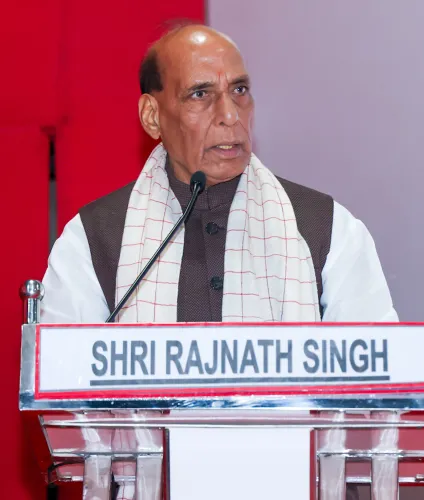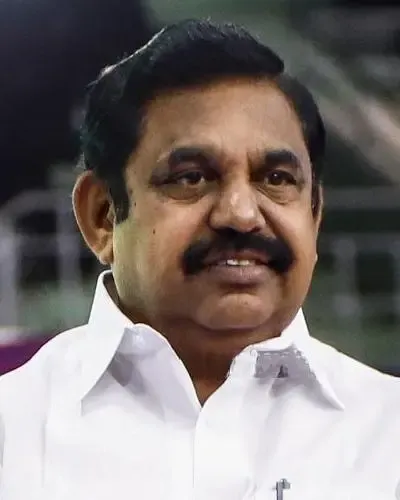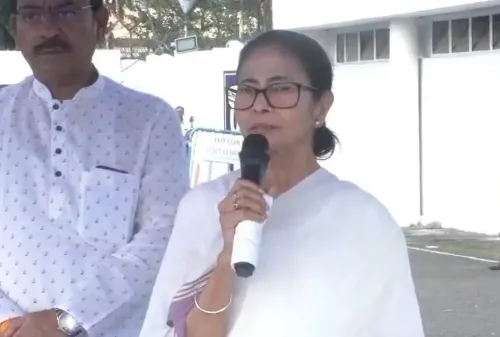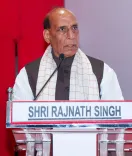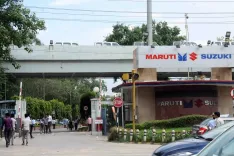Will India Become the World’s ‘Food Basket’?
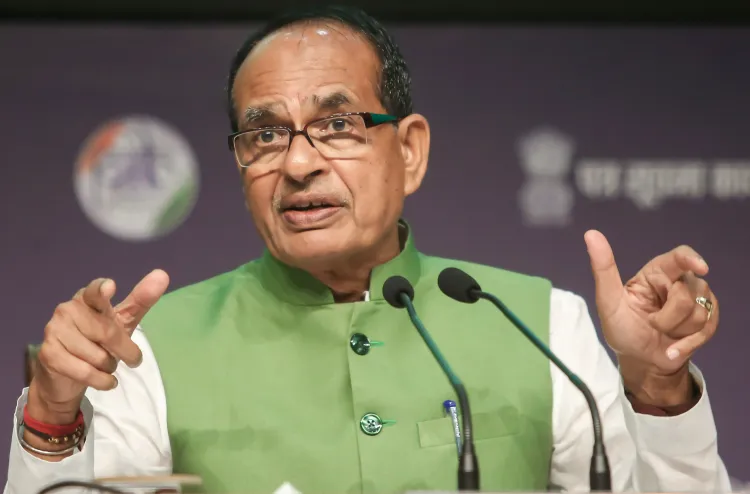
Synopsis
Key Takeaways
- India's agricultural landscape is evolving with initiatives like Dhan-Dhaanya Krishi Yojana.
- Self-sufficiency in pulses is a crucial goal for the nation.
- FPOs are empowering farmers by increasing their market reach.
- The government is taking strong action against fake fertilizers and low-quality seeds.
- Continuous efforts are being made to enhance agricultural productivity.
New Delhi, Oct 12 (NationPress) Union Agriculture Minister Shivraj Singh Chouhan stated that India is progressing towards becoming the world’s “food basket,” propelled by the initiatives of the PM Narendra Modi government -- the Dhan-Dhaanya Krishi Yojana and Dalhan Aatmanirbhar Mission.
In an exclusive discussion with IANS, Chouhan elaborated on these pivotal schemes, the government’s efforts to enhance farmer empowerment, and the vision for India’s agricultural landscape. Here are selective insights from the interview:
IANS: Prime Minister Modi has recently introduced the Dhan-Dhanya Krishi Yojana and the Dalhan Atmanirbhar Mission. What is their significance for farmers?
Shivraj Singh Chouhan: These initiatives are vital for farmers. While certain districts in India boast high per-hectare yields, numerous others are still struggling with low productivity and insufficient irrigation.
We have pinpointed such underdeveloped districts and ensured that 36 schemes from 11 diverse departments will collaborate there. This unified strategy will not only boost productivity but also elevate agricultural output.
Regarding pulses, our objective is complete self-sufficiency. India has already achieved self-reliance in wheat and rice but still relies on imports for pulses. The Prime Minister has launched a special mission to rectify this.
By 2030–31, we aim to attain total self-reliance in pulse production, benefitting both farmers and the nation.
IANS: Why is there an emphasis on self-sufficiency in pulses?
Shivraj Singh Chouhan: A significant portion of India’s population is vegetarian and depends on pulses for protein. As prosperity increases, so does the demand for pulses; people cannot envision a meal without them.
Furthermore, crop diversification is essential. Continuing to cultivate only wheat and rice would lead to soil fertility decline. Pulses, however, enhance soil health by fixing nitrogen. Therefore, promoting pulse cultivation is crucial.
IANS: You recently toured flood-affected regions. What relief has been provided to farmers?
Shivraj Singh Chouhan: We engaged directly with farmers, visiting their homes and standing alongside them in floodwaters. The Prime Minister has allocated a relief package of Rs 1,600 crore for Punjab.
I will revisit Punjab on October 14. Damaged homes will be reconstructed using funds from the Pradhan Mantri Awas Yojana.
Additionally, we are addressing the issue of silt accumulation, working in conjunction with state governments due to India’s federal governance structure. We are committed to alleviating farmers’ hardships.
IANS: What message do you have for officials and ministers interacting with farmers?
Shivraj Singh Chouhan: Those in positions of service must wholeheartedly commit to farmers' welfare. Whether as a minister, official, or chief minister, it is our duty to support farmers.
Genuine agricultural understanding arises from engaging in the fields, not merely from office work. We must work diligently, as nearly 46 percent of our population depends on agriculture.
IANS: How much has agricultural output increased since 2014, and what are the government’s future objectives?
Shivraj Singh Chouhan: We have significantly increased wheat and rice production to the extent that we are now facing storage issues. India has transitioned into a food-surplus nation and is even exporting grains. Our goal is to ensure national food security and position India as the “food basket of the world.” We are continuously striving to enhance productivity and fortify the agricultural framework.
IANS: What measures are being taken to combat fake fertilizers and poor-quality seeds?
Shivraj Singh Chouhan: The distribution of fake fertilizers, substandard seeds, and pesticides is a profound betrayal of farmers’ trust -- we regard it as a serious offense. The government has initiated stringent actions against these perpetrators, including factory closures and extensive raids. This crackdown will persist as protecting farmers’ interests is our utmost priority.
IANS: Are Farmer Producer Organisations (FPOs) beneficial for farmers?
Shivraj Singh Chouhan: Certainly. Over 5.2 million farmers are now linked with FPOs, with around 1,100 organizations currently operating, generating a combined turnover exceeding Rs 15,000 crore.
FPOs assist farmers in attaining better prices and enhancing productivity. We plan to broaden this model to reach more farmers.
IANS: How will the government ensure pulse procurement, and what role will states play?
Shivraj Singh Chouhan: Agriculture is primarily a state responsibility, making state involvement essential. The Centre has already guaranteed procurement of wheat and rice under the Minimum Support Price (MSP).
Now, pulses such as urad, masoor, and arhar will also be procured at MSP, particularly from registered farmers. The MSP for these crops has seen substantial increases in recent years. States must actively participate in the procurement process.
IANS: How prepared is India to face the impact of US tariffs?
Shivraj Singh Chouhan: Prime Minister Modi has unequivocally stated that India will not compromise on farmers’ interests. National priorities come first, and we are fully equipped to protect them.
IANS: Could the US enter India's agricultural market?
Shivraj Singh Chouhan: Any decision regarding this will prioritize farmers’ welfare. Our small and marginal farmers remain our primary focus, and safeguarding their livelihoods is our duty.
IANS: Stubble burning is a significant concern in Delhi-NCR. How is the government addressing this issue?
Shivraj Singh Chouhan: Stubble burning is an inappropriate practice. We are encouraging farmers to convert crop residue into compost and adopt direct seeding techniques.
In collaboration with state governments, we are providing custom machinery to assist farmers in managing stubble effectively and preventing burning.
IANS: How are you promoting the use of Swadeshi (indigenous) products?
Shivraj Singh Chouhan: For an Atmanirbhar Bharat, embracing Swadeshi products is vital. I personally advocate for the use of Indian-made goods. Joining platforms like Zoho signifies a step towards adopting Swadeshi values.
IANS: There has been controversy regarding OBC reservation in Madhya Pradesh. What are your thoughts?
Shivraj Singh Chouhan: The state government has articulated its position clearly.
IANS: What are your views on Rahul Gandhi’s frequent overseas trips?
Shivraj Singh Chouhan: He appears to spend more time abroad than in India, suggesting a disconnect with India’s culture and values. Criticizing one’s own nation is not an appropriate approach.
IANS: What are your expectations from the upcoming Bihar elections?
Shivraj Singh Chouhan: Bihar has experienced significant progress -- from the establishment of the Makhana Board to various welfare initiatives enhancing lives. I am confident that the double-engine government will return to power.
IANS: What is your response to the recent attacks on BJP MPs in West Bengal?
Shivraj Singh Chouhan: The situation in Bengal is concerning. I will refrain from commenting on the possibility of President’s Rule at this moment.
IANS: What are your reflections on Prime Minister Narendra Modi’s 24 years of public service?
Shivraj Singh Chouhan: Prime Minister Modi’s life is wholly dedicated to national service. Over 24 years, he has tirelessly worked for the populace -- both as Chief Minister and as Prime Minister. Having such a leader is a tremendous blessing for India.

